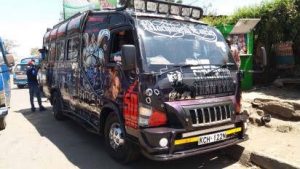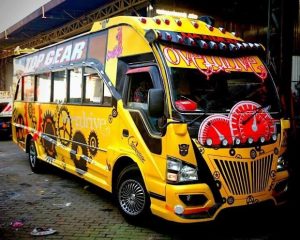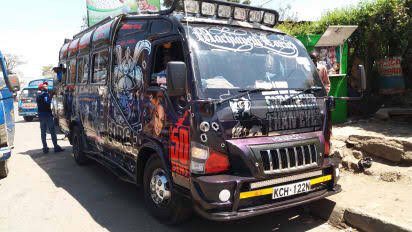Owners and operators of Matatus in Kenya are demanding that the Kenya Revenue Authority (KRA) reduces the amount they are being charged in advance tax per seat for their Matatus. They have sited the reduced income brought on by the ongoing Coronavirus pandemic as the reason for this demand.

Since the outbreak of Coronavirus, Matatus and other means of transportation, have been required to only operate at half capacity.
The Chairman of the Matatu Owners Association (MOA); Simon Kimutai stated that the Matatu operators should now be charged based on the current Coronavirus pandemic prevention vehicle capacity arrangements which state that a Matatu can only carry 60 percent of its original capacity, so as to effectively enforce and maintain social distancing.
Mr. Simon Kimutai said, “The KRA is still demanding 720 Kenyan Shillings per seat per year or 10,080 Kenyan Shillings for a 14-seater matatu whose capacity has been reduced to nine seats, while the 41-seater buses that pay 29,520 Kenyan Shillings per annum have had their capacity reduced to 25 passengers.”
He added that, “Why do you charge me per seat, then criminalise carrying full capacity…How do I recover my expenses during this Covid-19 period when business is at its lowest?”

Right now a 33 seater bus that pays an advance tax of 23,760 Kenyan Shillings per year is now only able to carry a maximum of 17 passenger. For a 26 seater bus, its operators are now limited to not more than 15 passengers while still being made to pay 18,720 Kenyan Shillings per year.
The Chairman of the Matatu Owners Association (MOA) spoke in Nairobi after sending a memorandum to the Kenya Revenue Authority (KRA) which demanded for a review of the current advance taxes.
Transport Licensing Board (TLB) fees, vehicle inspection fees, insurance fees, fuel levies, parking fees, alongside the advance tax, must be paid before any matatu operates on the road and begins catering to passengers.

Simon Kimutai said, “We do not mind paying taxes, but we wonder why we are being overlooked when other sectors have been given a reprieve.”
The Director of the National Transport and Safety Authority; Wilfred Okemwa during an earlier interview stated that no Matatu will be certified and or inspected as roadworthy, until it proof of advance tax payment is provided.
The Matatu business has been heavily affected by the prevention methods put in place to help reduce the spread of the Coronavirus pandemic. Currently all movement activities in Kenya are prohibited between the hours of 10pm and 4am every day. This measure, has also affected the long distance transport operators who have had to readjust and reduce their travel hours.
On the other hand Kenya Railways launched its night travel service in December of 2020 along its Nairobi to Mombasa route to capitalize on the night travel ban.
Are there any other topics, news, devices, or categories that you would like us to write on? Feel free to reach out to Mpesa Pay in the comment section.


